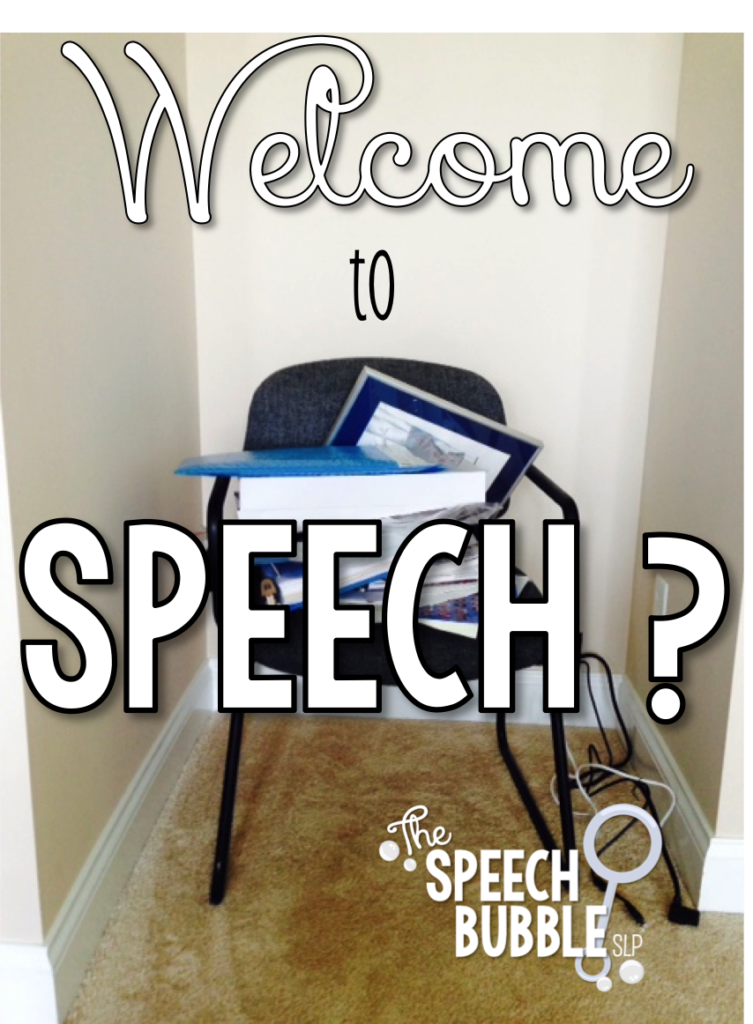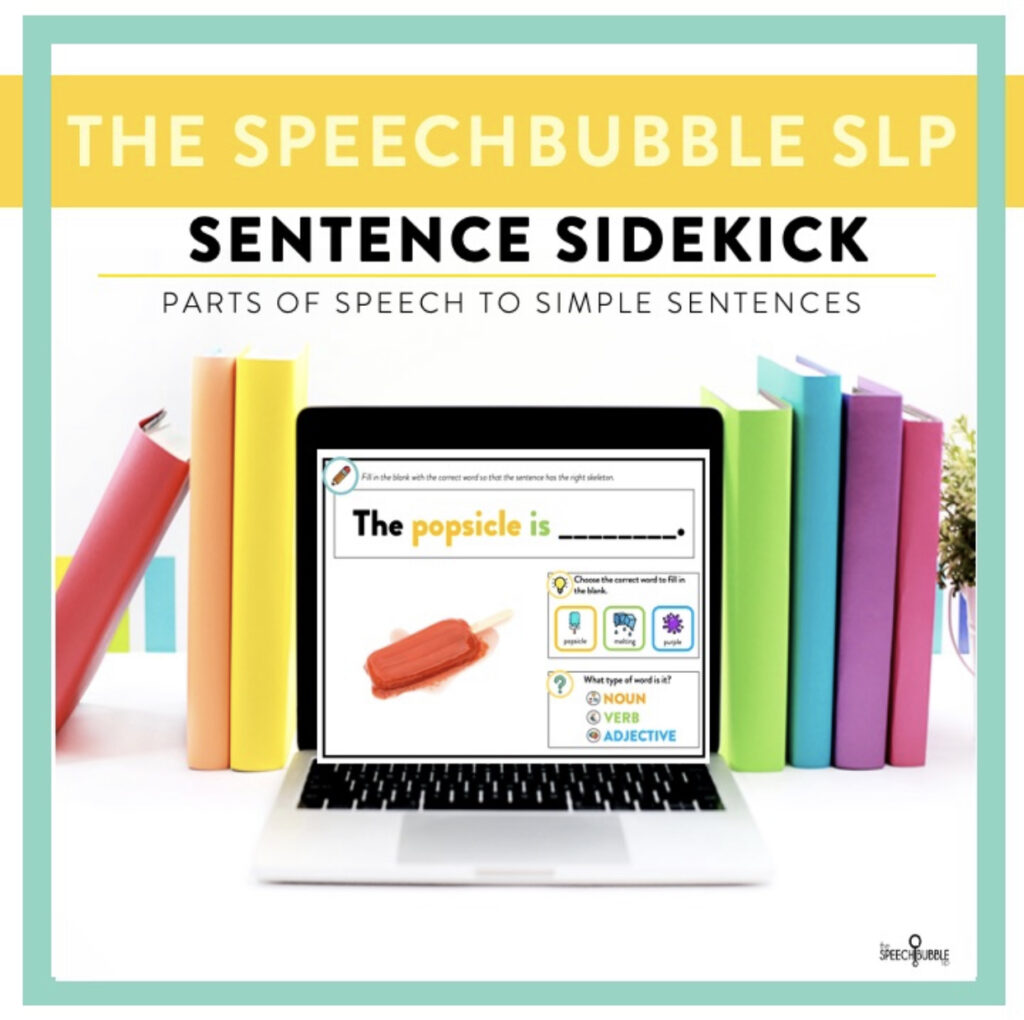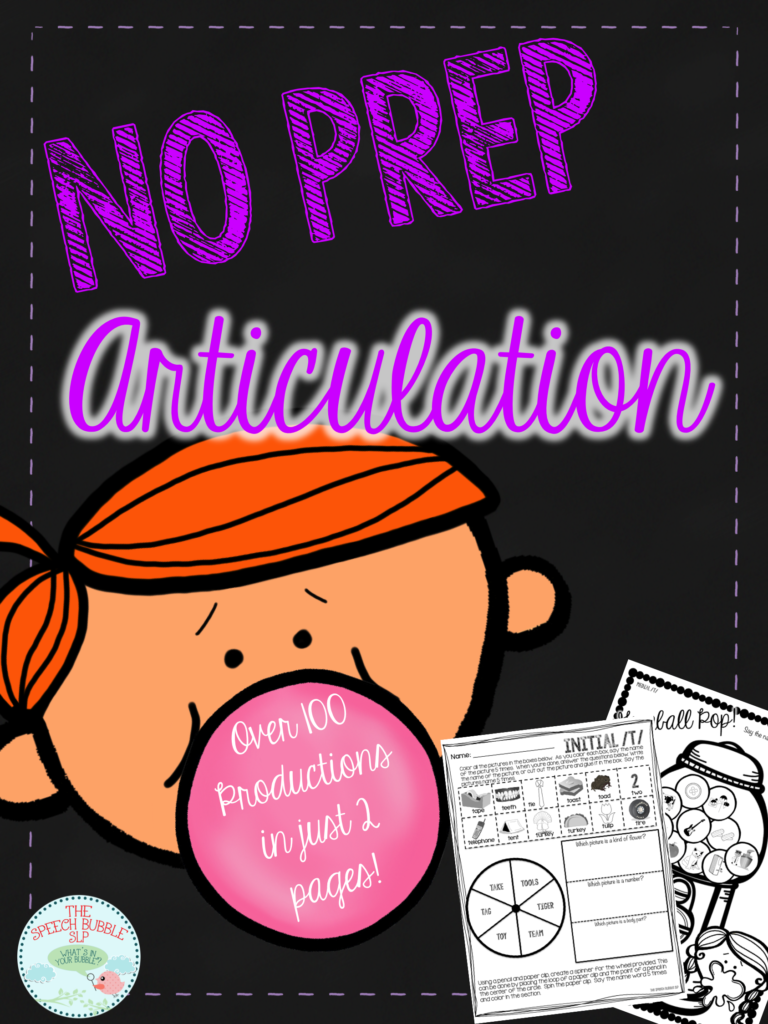
Last week I came across this little video and it made me giggle. Two SLPs made up a little song about their, shall we call it ‘ extremely cozy ‘ speech room. You can watch the video HERE.
After I posted the video on Facebook comments started popping up about SLPs past and current ‘speech rooms’. Everything from closets, kiln rooms, the corner of a stage in the gym, even a space next to the boiler room in the basement with a single, blinking light bulb! Needless to say I was shocked! I know that SLPs are typically given tiny spaces in schools. How this trend got started I don’t know, but after reading some of the environments other SLPs have to work in I think this is a trend that has to stop!
What Can You Do?
Many of you may think, ‘It’s just how it is. There isn’t anything I can do.’ Push these thoughts aside! If you are one of those professionals ‘assigned’ to a space that prevents you from providing adequate, effective therapy then you have the RIGHT to speak up.
– Talk to your Assistant Principal or Principal and explain, specifically, how the environment negatively impacts your abilities to deliver adequate and effective therapy. Maybe you are unable to have kids in the right groups because they won’t all fit? Perhaps the environment you are in prevents your student’s from being open and working on their skills because others can easily hear them? This is not saying that YOU are inadequate or do not have the knowledge to provide adequate therapy, but the environment makes it difficult for students to receive it. It has been said that SLPs can do therapy with a paperclip, but not in a space the size of a paperclip!
– The space is in violation of ASHA’s Ethics in Confidentiality. Here are two excerpts from ASHA, please see the full statement in the link provided. Is your space ‘exposed’ easily to others? Can non-speech students, teachers, or passers by hear you and your students discussing their diagnoises, treatment plan, etc?:
“Professional persons in health care delivery fields (including those working in the public schools) have legal and ethical responsibilities to safeguard the confidentiality of information regarding the clients in their care.”
“The ASHA Code of Ethics (2010) identifies the confidentiality of information pertaining to clients, patients, students, and research subjects as a matter of ethical obligation, not just a matter of legal or workplace requirements. Respect for privacy is implicitly addressed in Principle of Ethics I because to hold paramount the welfare of persons served is to honor and respect their privacy and the confidential nature of the information with which they entrust members of the professions. This broad, general obligation is further specified in both Rules M and N.”
– Come with options. Do some scouting. Are there other spaces in your building that are currently not being used or could be switched or repurposed with your current space? Do you have an colleague with a larger space who is willing to share for the good of your students? Administrators hear problems and complaints all the time. Coming in with some possible solutions shows you are proactive and not just there to complain.
– Be strong, understanding, and professional. The possibility of hearing ‘No’ is always there. Be strong and ask why, but nicely. Be understanding to the administration. Listen to their explanation with an open mind and from their perspective. Be professional in your responses. We are a passionate profession and sometimes it can come out the wrong way, especially when we are fighting for our kids. If you get a ‘No’, then professionally request that you be put on a list or some type of note be made, that when a space becomes available, it be offered to you. Also, don’t be afraid to check in after a few weeks or so. Even though getting a better space is on the top of your priority it probably isn’t on the top of your administrators. Politely ask about and news about new spaces or changes being made that could give you a new, better space.




















9 Responses
A colleague of mine actually used to treat in a bathroom. Thank you for the reminder of ASHA’s stance on this. We need to advocate for ourselves & our students. Strong, understanding, & professional is the way to go!
That’s awful! I hope they are in a better space now.
I have quit very high paying speech positions after seeing the “speech room/area/space”—- I always ask to see the speech room before accepting a job, but only 3 times in 25 years, has a district shown me the room. Also, I work with pre-k, and a principal actually told me “don’t ‘play’ on the floor with the students; make them sit at the table.” I quit that job—- then I found out I was the 4th SLP in the position in 6 months.
I appreciated this article. I was moved into a much smaller space this year. My first reaction was that it definitely wouldn’t work, but like many SLPs was afraid of “Making a scene.” So I trailed it for the first 3 weeks of school so I could voice my specific concerns regarding safety and why the space was not big enough. My principal was receptive and is looking for other options. I was originally worried that I might come across as demanding and whiny but I realized I was actually being respectful, professional and assertive.
I am so happy to hear that you advocated for yourself and your kids in such a professional way! Way to go!
My team and I came up with several solutions at one of my buildings and all of them were nixed, one of them because the principal didn’t want our newly hired (2 months in the building versus this is my third year) interventionist to feel “displaced” and, besides, she needed a place to put her coat and her lunch (she is almost never actually IN the room she got because she “pushes in” to classrooms). At my other building, where I was given notice at the end of last year that they had hired a school counselor, I shared this from ASHA in hopes of getting a decent space: https://www.asha.org/policy/TR2002-00236/ (this didn’t work out, either; all of the special education and related services are sharing a classroom).
Hi! I just read your article.. and I have to say I recently found out that I was being moved to a small room next to the music room. I am losing my room space, white board, bulletin board, and smart board. I was looking for ideas to facilitate discussions that moving next to the music room in a small area is not beneficial for my students and grouping of my students in a small area. I feel like I’m being moved back in time! Any suggestions that you could make or refer me to would be greatly appreciated!!
That stinks when you get moved, especially when you are not just losing space but great tools. My tips would be come with some replacement ideas ready to go. Is there a room somewhere else that can be used? Can someone who perhaps doesn’t see students regularly or as frequently be placed there? Is there a large classroom that one person ( not a teacher has ) that they wouldn’t mind sharing? Coming to the table with ideas shows you are a team player and willing to be flexible. Also come with objective reasons why that space will not work: Students with Autism who may have difficulty with the extra sensory input, not conducive to testing and may impact a student’s performance and therefore results, etc. Be objective, be calm. It’s tough but you need to advocate for yourself and your students.